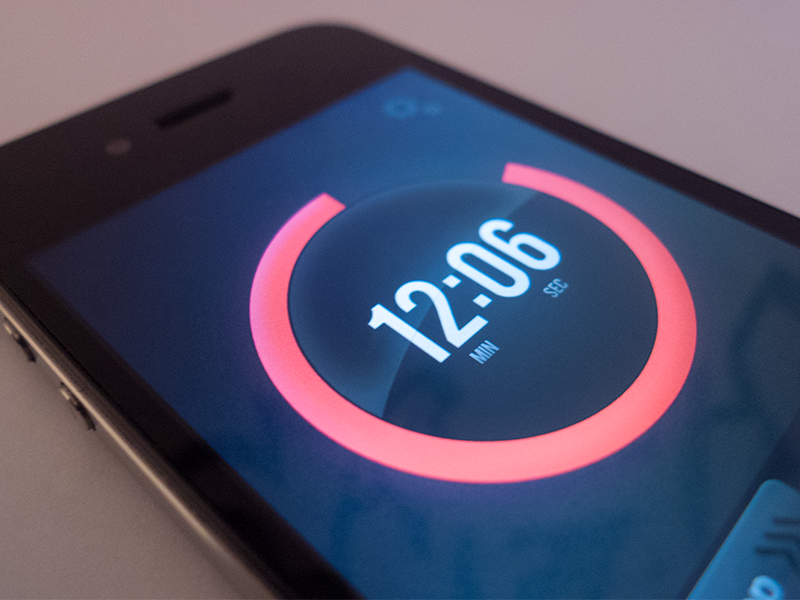

Use the USE_SCHEDULER parameter of the APP_TIMER_INIT() macro to select if the Scheduler should be used or not. This will be the case, for example, when stopping a timer from a time-out handler when not using the scheduler. Timers can be grouped together for organizing and linking. Features such as Linked timers, which allow for timers sequences and Voice notification required app to be running in foreground. Timers use scheduled toast notification which enable notifications to happen in background even if app is not running.
#Itimer app code#
Since the SWI0 interrupt is running in APP_LOW, if the application code calling the timer function is running in APP_LOW or APP_HIGH, the timer operation will not be performed until the application handler has returned. Setup multiple countdown timers for tracking activities. The actual timer start/stop operation is executed by the SWI0 interrupt handler.
#Itimer app software#
When calling app_timer_start() or app_timer_stop(), the timer operation is just queued, and the software interrupt is triggered. Both interrupt handlers are running in APP_LOW priority level.

List handling is done using a software interrupt (SWI0). Checking for time-outs and invocation of user time-out handlers is performed in the RTC1 interrupt handler. This module enables the application to create multiple timer instances based on the RTC1 peripheral. More.įunction for resuming RTC activity which drives app_timer. More.įunction for pausing RTC activity which drives app_timer. More.Īpp_timer_op_queue_utilization_get (void)įunction for getting the maximum observed operation queue utilization. More.Īpp_timer_cnt_diff_compute (uint32_t ticks_to, uint32_t ticks_from)įunction for computing the difference between two RTC1 counter values. More.įunction for returning the current value of the RTC1 counter. More.įunction for stopping all running timers. More.Īpp_timer_start ( app_timer_id_t timer_id, uint32_t timeout_ticks, void *p_context)Īpp_timer_stop ( app_timer_id_t timer_id)įunction for stopping the specified timer. More.Īpp_timer_create ( app_timer_id_t const *p_timer_id, app_timer_mode_t mode, app_timer_timeout_handler_t timeout_handler)įunction for creating a timer instance. Never declare a variable of this type, but use the macro APP_TIMER_DEF instead.įunction for initializing the timer module. More.Īpp_timer_timeout_handler_t )(void *p_context) More.ĪPP_TIMER_DEF(timer_id) _APP_TIMER_DEF(timer_id)Ĭreate a timer identifier and statically allocate memory for the timer. Name of the module used for logger messaging.ĪPP_TIMER_SCHED_EVENT_DATA_SIZE sizeof( app_timer_event_t)ĪPP_TIMER_MAX_CNT_VAL RTC_COUNTER_COUNTER_MskĬonvert milliseconds to timer ticks.
#Itimer app driver#
Real Timer Counter (RTC) peripheral driver for app_timer.
#Itimer app how to#



 0 kommentar(er)
0 kommentar(er)
